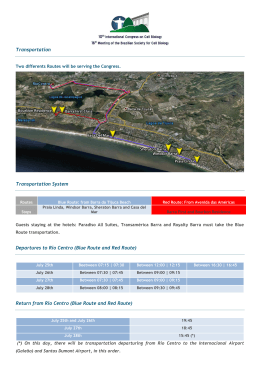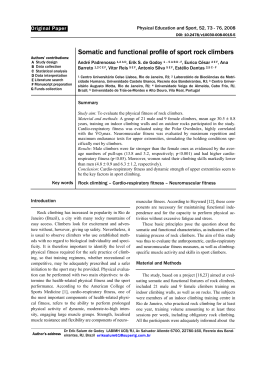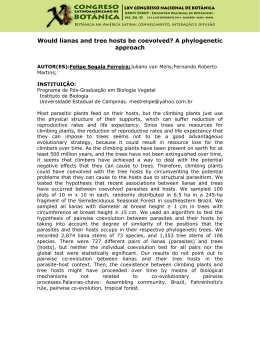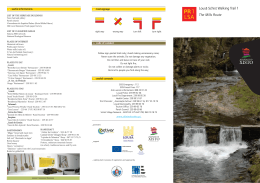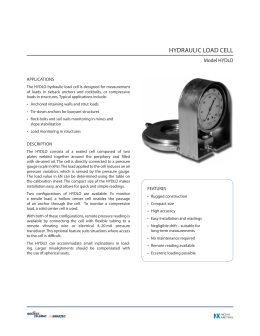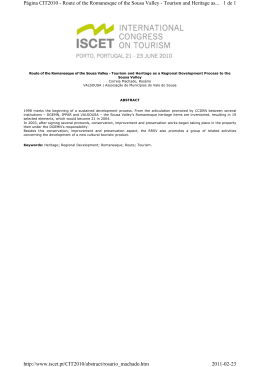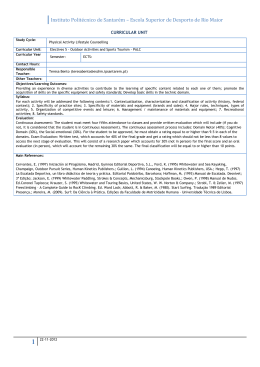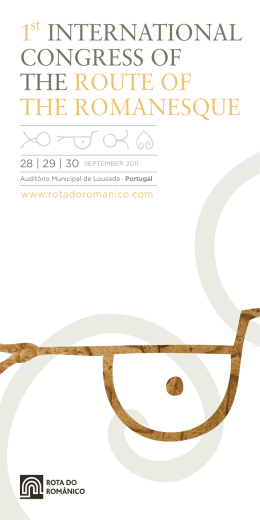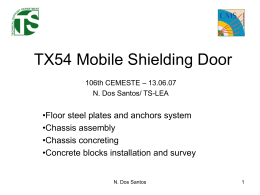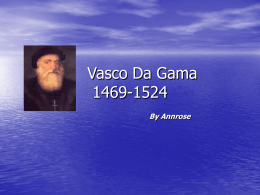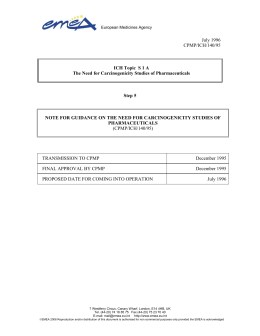Confederação Brasileira de Montanhismo e Escalada Rio de Janeiro, October 10, 2013 THE ODDO – MORONI CASE On September 2013, messages in social medias and internet blogs declared that rock climbers Enzo Oddo from France and Gabriele Moroni from Italy had removed fixed anchors from the route “Tiro no Sol,” which was set in 2007 by Eliseu Frechou, Wagner Pahl, Mariana Candeia, and Felipe Guimarães. This route is located in the “Prateleiras complex”, at the high lands of Itatiaia National Park (PNI12), in Rio de Janeiro, Brazil. Three organizations affiliated with the Brazilian Climbing and Mountain Hiking Confederation (CBME3) are members of PNI’s Consultative Council (CC): FEMESP4 - Climbing and Mountain Hiking Federation for the State of São Paulo, FEMERJ5 – Climbing and Mountain Hiking Federation for the State of Rio de Janeiro, and GEAN6 – Excursionist Group Agulhas Negras. Individual climbers affiliated with these three organizations are also members of PNI’s Technical Council for Climbing, Mountain Hiking and Ecotourism (CTME7), a technical committee subordinated to the PNI’s CC. Combining information that came from these sources, it has been confirmed that climbers Enzo Oddo and Gabriele Moroni had been climbing several routes within the limits of PNI on June 2013.. In all occasions Brazilian climbers accompanied them. Unfortunately two violations were registered during this trip. The first one regards the setting of a new route at “Pedra da Tartaruga” (“Turtle Rock”), with a series of fixed anchors. As it is known by the majority of climbers that visit PNI, an authorization is needed before setting up a new route inside the Park. New projects are analyzed by the CTME, which has not received any applications regarding that route. The Brazilian climber who joined Oddo and Moroni confirmed this, and an article was published in the “O Globo” newspaper and several Internet websites. The same Brazilian climber, following a request from CTME, removed the fixed anchors. CTME has also issued an official statement condemning Oddo and Moroni for their conduct in disagreement with the rules of the park. The second violation has no relationship with park rules, but interferes directly with the climbing ethics and principles, especially what is known in Brazil as the “Authoring Principle.” This is basically the idea that the line of the first ascent is not to be altered without the first ascenders consent. It was confirmed that the fixed anchors of the route “Tiro no Sol” were either removed or damaged. Brazilian climbers who contacted Oddo and Moroni declared that they confirmed to have indeed either removed or damaged the fixed anchors from the route. 1 All acronyms are in Portuguese Parque Nacional do Itatiaia 3 Confederação Brasileira de Montanhismo e Escalada 4 Federação de Montanhismo do Estado de São Paulo 5 Federação de Montanhismo do Estado do Rio de Janeiro 6 Grupo Excursionista Agulhas Negras 7 Câmara Técnica de Montanhismo e Ecoturismo 2 Av. Almirante Barroso 2, 8º andar CEP 20031-‐000 Rio de Janeiro RJ CNPJ: 07.303.337/0001-‐17 Confederação Brasileira de Montanhismo e Escalada Rock Climbing, which is more than 100 years old in Brazil and even older in other parts of the world, has its own history, culture and traditions. Over the years, some fundamental ethical principles where coined, always based on real events – positive or negative ones - with subsequent consensus on controversial issues, usually aiming to reach a compromise. The “To Bolt Or Not To Be” manifest was published, followed by documents); this way also were issued the codes of ethics worldwide, including the Mountain Ethics Declaration from the Associations d'Alpinisme - International Mountaineering and mountaineering and climbing entity in the world. the Tyrol Declaration (both UIAA of many climbing organizations UIAA (Union Internationale des Climbing Federation), the top Among these principles, the “Authoring Principle” stands as one of the most respected worldwide. It states that no climber should remove or add fixed anchors to an established climbing route without the consent of the climber (or team of climbers) who first ascended the route. Although not perfect and object of some criticism, this principle was the best solution to avoid arbitrary changes to climbing routes and its undesirable consequences. As an example, if the climber "a" thinks he/she has the right to change a route first ascended by climber "b", this one in turn will also think he/she has the right to change a route first ascended by "a" and this may result in situations such as the so called "Bolt Wars" in which the rock and the environment would suffer the most. It’s not a matter of discussing the appropriateness of a principle or guideline, but of respecting the existing and well-established ones. CBME considers ethically condemnable the action of any climber who deliberately modifies the original characteristics of a climbing route by either adding, removing, or damaging fixed anchors, unless he/she was the original route setter or has official consent from the route’s first ascender. In the case presented here, CBME considers condemnable the actions of Enzo Oddo and Gabriele Moroni, who deliberately broke the rules of PNI when setting up a route at Turtle Rock and disrespected the “Authoring Principle” by removing fixed anchors from the route “Tiro no Sol”. CBME also considers condemnable the attitude of the Brazilian climbers who accompanied Oddo and Moroni, for their omission both regarding park rules and the “Authoring Principle.” We consider that every climber, mountain hiker, or mountaineer must warn and even try to stop any person performing an action against ethics or against the principles of minimal impact on the environment, especially inside a National Park, where rules are well established, officially published, widespread and well known. At last, we encourage the local climbing community to reverse the modifications improperly made, restoring the route “Tiro no Sol” to its original condition (or as wished by the first ascenders). We hope that this episode serves as a way for Brazilian climbers to reaffirm their adherence to the ethical principles that guide our activity. CBME – Confederação Brasileira de Montanhismo e Escalada Av. Almirante Barroso 2, 8º andar CEP 20031-‐000 Rio de Janeiro RJ CNPJ: 07.303.337/0001-‐17
Baixar
